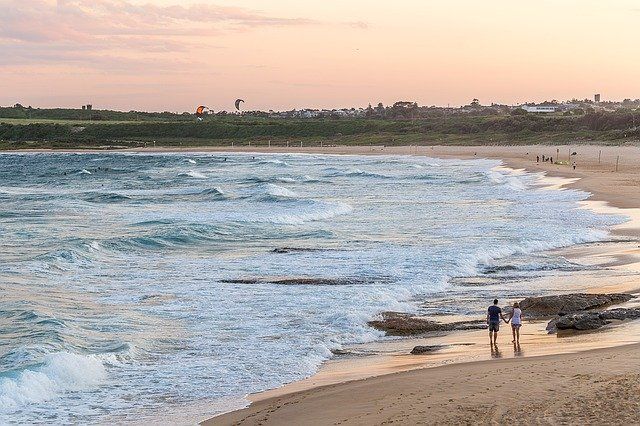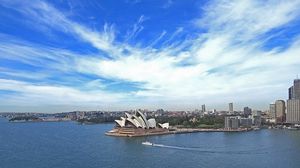The gospel came to Australia with the ‘First Fleet’ in 1788. On board was Rev. Richard Johnson, an evangelical Anglican clergyman. He ministered under great difficulties until 1800, when he returned to England.
It was only in the 1850s and the 1860s – following the gold rushes and the end of convict transportation – that the cause of Christ began to prosper.
Strangely enough, this was the very time when biblical criticism and the theory of evolution began to take hold. So 1860-1890 was, paradoxically, a time of both growth and declension for the Christian church.
Liberalism
From the late 1880s onwards, liberalism became the theology of most Protestant churches. At first this took the form of ‘liberal evangelicalism’ – retaining some supernaturalism but wavering on issues like eternal punishment, predestination and biblical inerrancy.
By the 1920s, a more obvious liberalism had emerged. In the 1930s the Presbyterian Church of New South Wales was unable to discipline one of its Theological Hall professors, Samuel Angus, who denied every vestige of orthodox, historical Christianity.
The church after World War 2 was a theological smorgasbord – neo-orthodoxy; the ‘positive thinking’ of Norman Vincent Peale; sacramentalism; ‘death of God’ theology; and plain sentimentality.

Throughout this period, however, a Reformed witness was maintained: by various smaller Presbyterian bodies, by a minority within the Anglican Church (mainly in the Sydney diocese), and by some Baptist churches. By the end of the 1970s the influence of the Reformed faith seemed to be extending but these hopeful signs of life and grace have yet to produce much fruit.
Political, ethnic and religious factors
Indigenous Australians have proved resistant to the gospel. Apart from the aborigines (or Kooris), and the Chinese who came with the mid-nineteenth century gold rushes, Australian society was predominantly Anglo-Saxon until the immigration programmes that followed World War 2.
Initially, the new migrants came mainly from Europe, but once the ‘White Australian’ policy was abandoned many have come from Asia. This has provided both problems and opportunities for Christians.
By the 1980s multi-culturalism was Australia’s new religion, with all creeds accepted – except true Christianity. Australian society now has little coherence, and even football fails to unify the nation!
Many Protestant churches have struggled to survive, and the formation of the liberal ‘Uniting Church’ in 1977 has done nothing to help. The percentage of Roman Catholics has increased to the point where they now outnumber Anglicans.
However, the percentage of practising Roman Catholics has continued to decrease, and a number of former Roman Catholics have embraced the doctrines of grace.

Weak recovery
The 1980s and 1990s have been disappointing for those who profess experimental Calvinism. There has been a considerable recovery of the Reformed faith within the Presbyterian Church of Australia, but weakness and compromise remain.
A minority within the Baptist Union profess the Reformed faith, but the Reformed Baptist movement of the late 1970s has not fulfilled its early promise.
Reformed Anglicans have had little impact on a denomination that now accepts women priests and is discussing the ordination of homosexuals. The recently elected Anglican primate, Dr Peter Carnley, exemplifies this apostasy, denying the physical resurrection of Christ, substitutionary atonement, and Christ as the only way to heaven.
Good Independent churches have been planted, but some have suffered from leaders with strong personalities, riding hobbyhorses.
Leadership, training and literature
Few Australian theological colleges could be called Reformed, the main exceptions – albeit not without problems – being the Presbyterian colleges in Brisbane, Sydney and Melbourne; Moore Theological College (Anglican) in Sydney; and the Reformed Theological College in Geelong.
The quality of pastoral leadership varies. There is no Spurgeon, Machen or Lloyd-Jones on the horizon! Many who claim to be ‘Reformed’ have few qualms about participating in decisionist or gimmicky evangelism.
Christian bookshops cater for a wide range of theological tastes. Even Koorong Bookshop, which began as a Reformed enterprise and has grown in status and influence, now has almost all theological breeds in its stable. Like many Christian bookshops today, they major on innocuous literature of a vaguely ‘evangelical’ hue.
Problems and prospects
Reformed Christians in Australia are beset with serious problems. Reformed Baptists outside the Baptist Union have tended to fight amongst themselves, while those within the Union are heavily outnumbered by Arminians, Charismatics and Liberals.
The Presbyterian Church of Australia has seen considerable reform. It pulled out of the World Council of Churches and rescinded a motion allowing the ordination of women. But its commitment to the Reformed faith remains patchy.
The smaller Presbyterian bodies show little evidence of growth, although there is encouragement in some places. The Sydney diocese of the Anglican Church is evangelical and, in places, Reformed. It maintains an admirable witness, but again the overall picture is patchy.
Many large towns in Australia lack a credible Reformed witness. Australia should be regarded as a mission field, with a fading memory of Christianity. As yet there is no persecution of true Christians, but believers are increasingly marginalised, both within and outside the major churches.
In Australia today there is an obvious need for reformation and revival. We need wholehearted commitment to the whole counsel of God, and a loving concern for the perishing souls of lost humanity.









